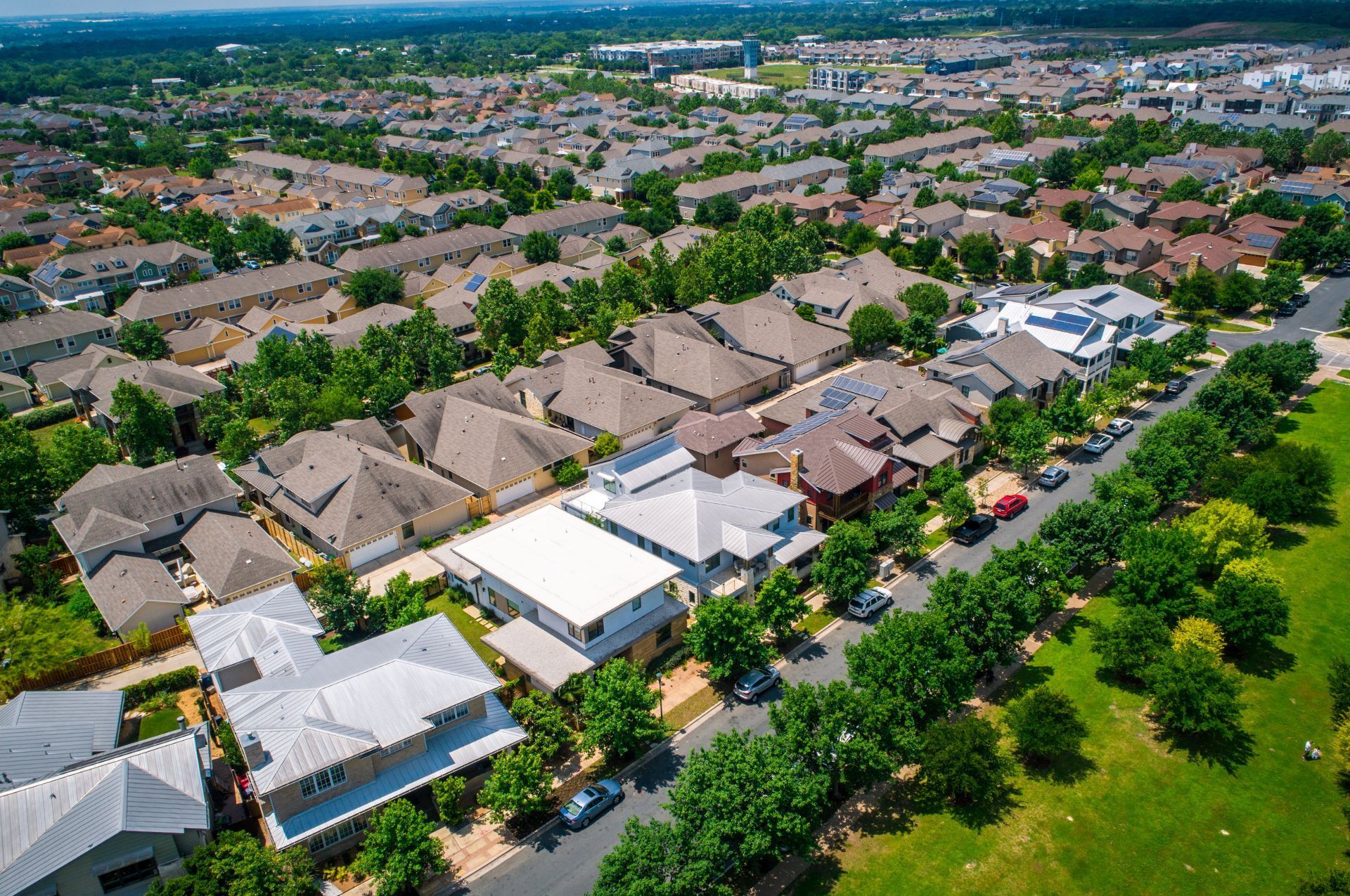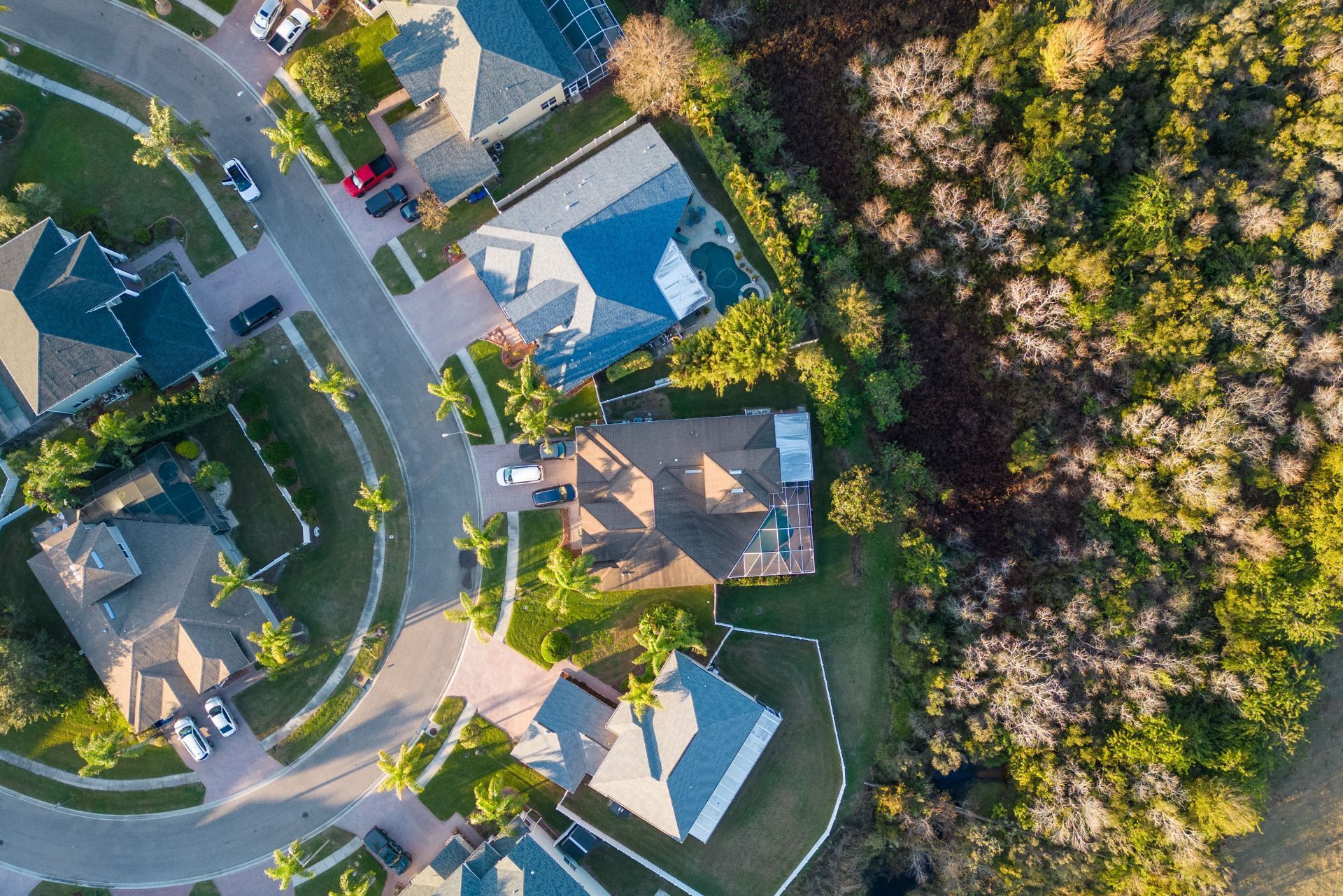
Top 3 Recommended Policies
Homeowners Associations (HOAs) play a crucial role in managing and maintaining residential communities across Connecticut. One of the most important aspects of running an HOA is ensuring that the community is adequately protected through insurance. This article delves into the various facets of HOA insurance in Connecticut, covering its importance, types, coverage options, and factors to consider when selecting the right policy.
Understanding HOA Insurance
HOA insurance is designed to protect the collective interests of a community's homeowners. It safeguards against potential liabilities and damages that may arise within the community, ensuring that both the association and its members are financially secure. Understanding the nuances of HOA insurance is essential for board members and homeowners alike.
What is HOA Insurance?
HOA insurance refers to a specific type of insurance policy tailored to meet the needs of homeowners associations. This policy typically covers common areas, shared amenities, and provides liability protection for the association itself. In essence, it serves as a safety net for the community, protecting against unforeseen events that could lead to financial loss.
In addition to covering physical structures such as clubhouses, pools, and landscaping, HOA insurance can also extend to the community's assets, including equipment and furnishings. This comprehensive coverage ensures that the association can quickly recover from incidents like vandalism or natural disasters, allowing for a swift restoration of the community's shared spaces. Furthermore, some policies may include coverage for loss of income, which can be particularly beneficial if the community relies on rental income from amenities or facilities.
Why is HOA Insurance Important?
The importance of HOA insurance cannot be overstated. Without adequate coverage, an HOA could face significant financial burdens in the event of a lawsuit or property damage. This can lead to increased assessments for homeowners and, in severe cases, jeopardize the financial stability of the entire community.
Moreover, HOA insurance fosters a sense of security among residents. Knowing that there is a safety net in place can enhance community trust and cooperation, leading to a more harmonious living environment. This sense of security is particularly vital in communities with shared amenities, where the potential for accidents or disputes is higher. For instance, if a resident is injured while using a community pool, the liability coverage provided by the HOA insurance can help manage legal costs and protect the association from
financial repercussions. Additionally, many insurance policies may also include coverage for directors and officers, which protects board members from personal liability in the performance of their duties, further encouraging active participation in community governance.

Types of HOA Insurance Policies
General Liability Insurance
General liability insurance is one of the most essential types of coverage for an HOA. It protects the association from claims arising from bodily injury or property damage that occurs in common areas. For instance, if a visitor slips and falls in the community pool, this insurance can cover legal fees and any settlements that may arise from the incident.
This type of insurance is vital for protecting the HOA's assets and ensuring that the community can handle unexpected liabilities without financial strain. Additionally, it can provide peace of mind to residents, knowing that they are part of a community that prioritizes safety and responsibility. Regular training and safety audits can further enhance the effectiveness of this insurance, as they help to identify potential hazards in common areas and mitigate risks before they lead to incidents.
Property Insurance
Property insurance, also known as hazard insurance, covers the physical structures owned by the HOA, such as clubhouses, pools, and other shared facilities. This policy protects against damage caused by events like fire, vandalism, or severe weather.
Having property insurance ensures that the HOA can repair or replace damaged structures, maintaining the community's value and appeal. It's important for associations to regularly assess the value of their properties to ensure adequate coverage. Furthermore, HOAs should consider additional endorsements or riders that can cover specific risks, such as flood or earthquake damage, depending on the geographical location and historical weather patterns of the area. This proactive approach can safeguard the community's financial health and enhance the overall living experience for residents.
Directors and Officers (D&O) Insurance
Directors and Officers insurance is designed to protect the board members of the HOA from personal liability arising from their decisions and actions while serving in their official capacity. This type of insurance is particularly important in cases where board members may face lawsuits from homeowners or third parties.
By securing D&O insurance, board members can focus on their responsibilities without the constant worry of personal financial repercussions from their decisions. This coverage not only encourages qualified individuals to serve on the board, knowing they are protected, but it also fosters a culture of transparency and accountability within the association. Additionally, it can help in attracting experienced professionals to the board, as they may be more willing to participate in governance when they know their personal assets are safeguarded against potential claims. Regular training sessions on governance and risk management can further empower board members, ensuring they make informed decisions that align with the best interests of the community.
When selecting an insurance policy, Connecticut HOAs have various coverage options to consider. Understanding these options can help associations tailor their policies to meet their specific needs.
Additional Living Expenses (ALE)
Additional Living Expenses coverage is an option that can provide financial assistance if a community's common areas become uninhabitable due to a covered loss. This coverage can help pay for temporary housing or other living expenses incurred while repairs are being made.
Having ALE coverage can alleviate the financial burden on residents during challenging times, ensuring they have a place to stay while repairs are underway. Moreover, it can also cover costs such as meals and transportation, which can add up quickly when residents are displaced. This comprehensive support is crucial for maintaining community morale and ensuring that residents feel secure and cared for during unexpected disruptions.
Crime Insurance
Crime insurance protects the HOA against losses resulting from criminal acts such as theft, fraud, or embezzlement. This coverage is particularly important for associations that manage substantial funds, as it can safeguard against potential financial losses due to dishonest acts by employees or board members.
Investing in crime insurance can provide peace of mind and protect the community's assets from internal threats. In addition to covering direct financial losses, many crime insurance policies also include provisions for legal expenses incurred while pursuing recovery of stolen funds. This aspect is essential, as it not only addresses the immediate financial impact but also helps HOAs navigate the often-complex legal landscape that follows a crime, ensuring that the community can work toward restoring trust and stability.
Umbrella Insurance
Umbrella insurance provides an extra layer of liability protection beyond the limits of existing policies. This coverage is beneficial for HOAs that want additional security against large claims or lawsuits that could exceed the limits of their general liability or property insurance.
Having umbrella insurance can be a wise investment, especially in communities with significant assets or high traffic in common areas. It acts as a safety net, covering a wide range of liabilities, from accidents occurring on HOA property to claims arising from community events. Furthermore, in an age where litigation is increasingly common, having this additional coverage can protect the HOA from potentially devastating financial repercussions, allowing the association to focus on its primary mission of serving the community rather than being bogged down by legal concerns.
Factors to Consider When Choosing HOA Insurance
Selecting the right insurance policy for an HOA requires careful consideration of various factors. Each community has unique needs and risks, making it essential to evaluate these factors thoroughly.
Community Size and Structure
The size and structure of the community can significantly impact insurance needs. Larger communities with more amenities may require more extensive coverage than smaller associations. Additionally, the type of properties within the community—such as single-family homes, townhouses, or condominiums—can affect the insurance requirements.
HOAs should assess their specific circumstances to determine the appropriate level of coverage necessary to protect their community effectively. For instance, a community that includes multiple recreational facilities, like gyms and clubhouses, may need to consider additional liability coverage to protect against accidents that could occur on these premises. Furthermore, the age and condition of the properties can also influence insurance costs; older buildings may require specialized coverage due to their unique risks and potential for maintenance issues.
Risk Assessment
Conducting a risk assessment is crucial for understanding the potential liabilities and threats facing the community. This assessment can help identify areas that may require additional coverage or specific types of insurance. For example, communities with swimming pools or playgrounds may face higher liability risks and should ensure they have adequate coverage in place.
By regularly evaluating risks, HOAs can adjust their insurance policies as needed to maintain comprehensive protection. Engaging with a professional risk management consultant can provide valuable insights into potential hazards that may not be immediately apparent, such as environmental risks or crime rates in the area. Additionally, implementing preventive measures, such as regular maintenance checks and safety audits, can mitigate risks and potentially lower insurance premiums over time.
Budget Considerations
Budget constraints are a reality for many HOAs. It's essential to find a balance between adequate coverage and affordability. While it may be tempting to opt for the cheapest policy, this can lead to insufficient protection in the event of a claim.
HOAs should work with insurance professionals to find policies that meet their needs without breaking the bank. Comparing quotes from multiple insurers can also help identify the best value for coverage. Additionally, exploring bundled insurance options, which combine various types of coverage into a single policy, can often lead to cost savings. It's also wise for HOAs to consider establishing a reserve fund specifically for unexpected insurance costs, ensuring that they are financially prepared for any unforeseen events that may arise, thus providing an extra layer of security for the community.

Common Exclusions in HOA Insurance Policies
Understanding the exclusions in HOA insurance policies is vital for ensuring that the community is adequately protected. Many policies may not cover certain events or damages, which can leave associations vulnerable.
Flood and Earthquake Damage
Most standard HOA insurance policies do not cover flood or earthquake damage. This exclusion can be particularly concerning for communities located in areas prone to these natural disasters. HOAs may need to purchase separate policies or endorsements to ensure adequate coverage against these risks.
It's essential for associations to assess their geographical risks and consider additional coverage options as needed.
Wear and Tear
Insurance policies typically do not cover damages resulting from normal wear and tear. This means that routine maintenance issues, such as aging roofs or plumbing problems, may not be eligible for coverage. HOAs should budget for regular maintenance to address these issues proactively.
Understanding this exclusion can help associations plan for ongoing maintenance and repairs, ensuring the longevity of community assets.
Intentional Acts
Insurance policies generally exclude coverage for damages resulting from intentional acts or illegal activities. This means that if a board member or homeowner intentionally causes damage, the insurance policy will not cover the associated costs.
HOAs should establish clear guidelines and expectations for behavior within the community to mitigate the risk of intentional acts and ensure a harmonious living environment.
Finding the Right Insurance Provider
Choosing the right insurance provider is a critical step in securing adequate coverage for an HOA. With numerous options available, it's essential to conduct thorough research and evaluate potential insurers carefully.
Reputation and Experience
When selecting an insurance provider, consider their reputation and experience in the industry. Look for companies that specialize in HOA insurance and have a proven track record of serving communities effectively. Reading reviews and testimonials can provide valuable insights into the experiences of other associations.
Working with an experienced provider can ensure that the HOA receives tailored coverage and expert guidance throughout the insurance process.
Customer Service and Support
Excellent customer service is crucial when dealing with insurance matters. HOAs should seek providers that offer responsive support and clear communication. In the event of a claim, having a supportive insurance team can make a significant difference in navigating the process smoothly.
Consider reaching out to potential providers with questions to gauge their responsiveness and willingness to assist.
Policy Flexibility
Insurance needs can change over time, so it's important to choose a provider that offers flexible policies. Look for insurers that allow for adjustments in coverage as the community evolves, whether due to growth, changes in amenities, or shifts in risk factors.
Having a provider that can adapt to the HOA's changing needs can ensure ongoing protection and peace of mind.
The Claims Process for HOAs
Understanding the claims process is essential for HOAs to navigate insurance matters effectively. Knowing how to file a claim and what to expect can streamline the process and minimize stress during challenging times.
Reporting a Claim
When an incident occurs that may require a claim, it’s essential to report it to the insurance provider as soon as possible. Most insurers have specific timelines for reporting claims, and delays can result in denied coverage. HOAs should gather all relevant information, including documentation and photographs, to support the claim.
Clear communication with the insurance company is key to ensuring that the claim is processed efficiently.
Claim Investigation
After a claim is reported, the insurance company will typically conduct an investigation to assess the situation. This may involve reviewing documentation, speaking with witnesses, and evaluating the extent of damages. HOAs should cooperate fully during this process to facilitate a thorough investigation.
Understanding the timeline for investigations can help set expectations for when to anticipate a resolution.
Receiving Compensation
If the claim is approved, the insurance company will provide compensation based on the terms of the policy. This may involve direct payments for repairs or reimbursements for expenses incurred. HOAs should be prepared to manage the funds responsibly and ensure that repairs are completed to restore the community.
Maintaining clear records of expenses related to the claim can help ensure transparency and accountability throughout the process.
Conclusion
HOA insurance is a critical component of managing a homeowners association in Connecticut. Understanding the various types of coverage, factors to consider, and the claims process can empower associations to make informed decisions about their insurance needs. By securing adequate protection, HOAs can foster a sense of security and stability within their communities, ultimately leading to a more harmonious living environment.
As the landscape of homeowners associations continues to evolve, staying informed about insurance options and best practices will ensure that communities remain protected and thrive for years to come.
Contact Us
Phone
Locations
Connecticut Location
703 Hebron Ave., 3rd Floor, Glastonbury, CT 06033
North Carolina Location
436 East 36th St., Charlotte, NC 28205


